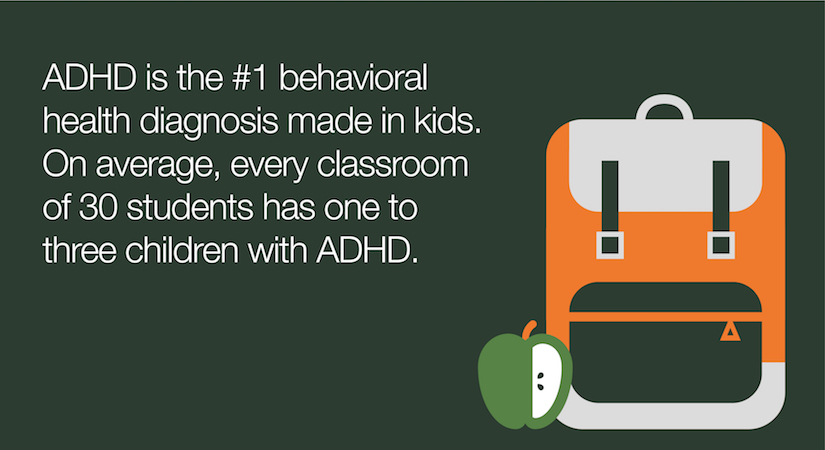Diagnosis rates of pediatric ADHD (attention-deficit/hyperactivity disorder) are on the rise. According to a 2019 Health of America report, ADHD diagnosis rates in children have increased 31% since 2010.
Read on to learn about ADHD and how your Asuris health plan can help with diagnosis, medications, virtual therapy and more.
Though the Diagnostic and Statistical Manual of Mental Disorders (DSM) criteria for symptom onset of ADHD is now 12 years old, usually signs of ADHD show up in kids before the age of 7. Diagnosis of ADHD can be made by your child’s pediatrician or by a mental health professional, like a psychologist or a psychiatrist. According to Dr. Mike Franz, senior medical director of behavioral health at Asuris, these symptoms fall into three categories:
Inattention: Has trouble staying focused, daydreams frequently, appears not to listen when spoken to
Hyperactivity: Fidgety, moves around constantly, talks excessively
Impulsivity: Blurts things out, interrupts others, can't wait for questions to be asked
Diagnosis of ADHD can be made by your child's pediatrician or by a mental health professional, like a psychologist or a psychiatrist.
The American Academy of Pediatrics recommends treating ADHD with a combination of medication and behavioral therapy. Pediatricians can prescribe ADHD medication, but they don’t usually provide behavioral therapy. For some kids with ADHD, medication alone works reasonably well, though a component of parent training and patient education is always recommended, according to Dr. Franz.
ADHD medications can be expensive. One way to get help making the best decisions for your health and wallet is by using your medication support tools on asuris.com. Letter grades for safety and effectiveness, plus personalized costs and insights, can help you make the right choice. Sign in to access your medication support resources.
Therapy often takes place with the parents, especially with younger kids. “There’s a good amount of work that you do with parents—how to set limits, how to create structure, how to be patient,” Dr. Franz explains. “Because an hour a week with a 7-year-old won’t accomplish much.”
For older kids who are able to sit down for therapy, virtual care—or telehealth—can help them make it to sessions, even with a busy schedule. They can have a session from home, the car or wherever it’s easiest. According to Dr. Franz, telehealth can be quite helpful for parents who are managing a child with ADHD. It’s also a convenient and affordable option for people who live in rural areas where there might not be any behavioral health providers nearby.
These days, many primary care offices also have behavioral health professionals as part of the team who can offer some brief therapy and education. If that’s not the case, ask your child’s pediatrician for help finding a behavioral health specialist. You can also call Customer Service or use our provider search tool to find someone in your network.
Learning more about ADHD can help you be proactive when it comes to your child's health. There are many resources online from groups like CHADD (Children and Adults with Attention-Deficit/Hyperactivity Disorder), Understood.org and NAMI (the National Alliance on Mental Illness).
Although ADHD can't be cured, it can be successfully managed. "ADHD is something that you learn to live with," Dr. Franz says. "You create strategies for yourself to be more organized, you create strategies for yourself to be more focused. There are all kinds of things you can do to maximize your ability to reach your potential."

 Symptoms and diagnosis
Symptoms and diagnosis